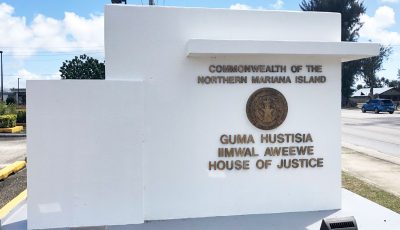High court upholds conviction of ex-CUC board chair
The Commonwealth Supreme Court recently upheld Francisco Q. Guerrero’s convictions for sexual abuse of a minor, disturbing the peace, and assault and battery. Guerrero’s appeal centered on three issues: due process, the scope of “position of authority” in the sexual-assault statute, and double jeopardy.
Beginning with due process, Guerrero alleged that the trial court punished him for exercising his constitutional right to remain silent because the court noted it had not heard any testimony disputing or denying the victim’s account. The Supreme Court agreed that the trial court should not have made the remarks, but ultimately concluded that Guerrero did not show that the remarks affected the outcome of the proceeding (a showing that was necessary because Guerrero did not object to the court’s remarks at the time they were made).
Next, Guerrero argued that his status as a grandfather did not mean he held a position of authority over the victim. The high court disagreed because “position of authority” covers virtually all possible positions that could conceivably possess some responsibility over a minor. This included Guerrero who regularly housed, supervised, and provided transportation for the victim.
Finally, Guerrero claimed his conviction for assault and battery violated double jeopardy because that conviction—and another—flowed from the same conduct. Again, the high court disagreed because the question was not whether the convictions stemmed from the same conduct, but whether each charge included at least one element the other charge did not. Here, the two charges had unique elements; therefore, the convictions did not violate double jeopardy.
Editor’s Note: Guerrero is a former chairman of the Commonwealth Utilities Corp. board of directors.
The Supreme Court’s full opinion is Commonwealth v. Guerrero, 2014 MP 15, and can be found at http://www.cnmilaw.org/supreme14.html. (NMI Judiciary)


























